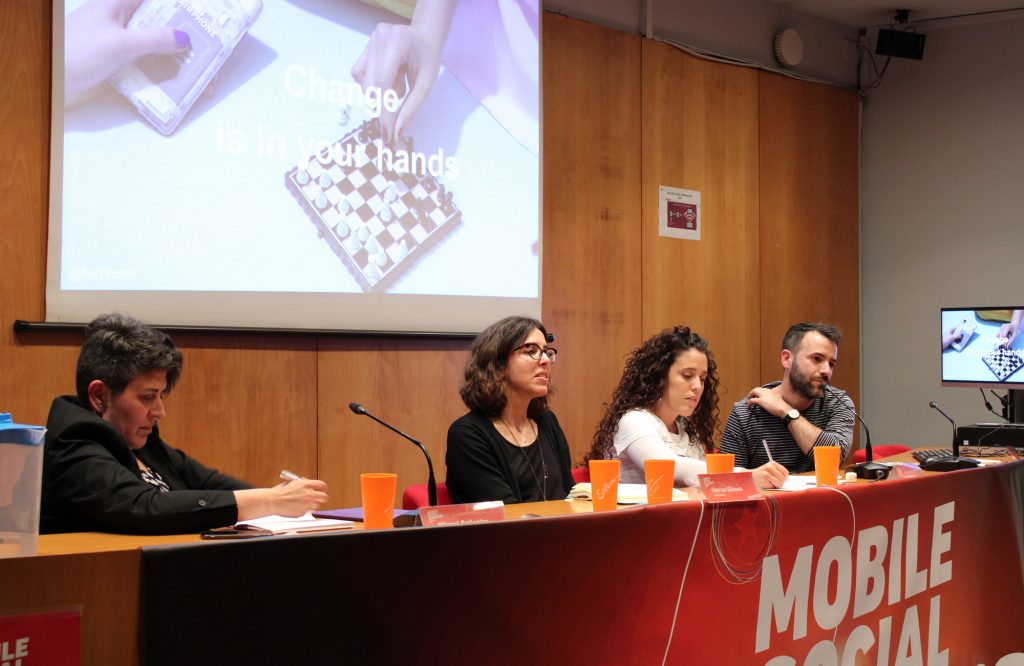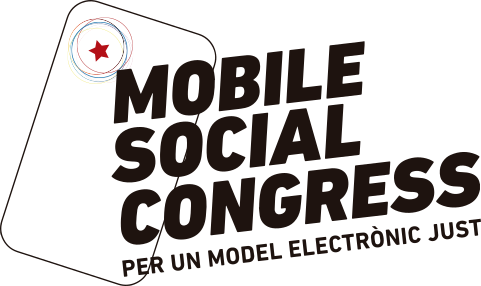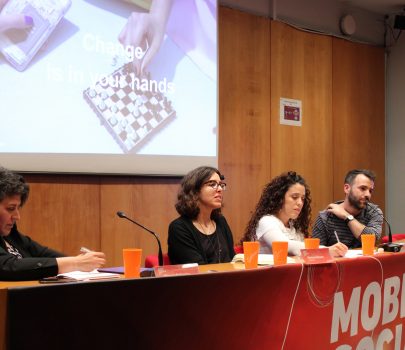
Around 400 people participated in the panel discussions and workshops that took place during the two days of the Mobile Social Congress (MSC) organized by SETEM Catalunya. The Congress took place on Tuesday and Wednesday at Pati Manning in Barcelona, coinciding with the Mobile World Congress (MWC). Nearly half of participants were women. The discussion panels included a significant female presence, with seven female speakers out of thirteen, as well as four female moderators. This is especially significant in the technology sector, where the presence and visibility of women is particularly low. The panel discussions at the Mobile Social Congress provided new points of view and alternative experiences on the production and consumption model of the electronics industry, something silenced by the Mobile World Congress. The organization of the MSC evaluated the two days of the Congress, and in the words of coordinator Laia Fargas Fursa, “the panel discussions provided an in-depth look at these topics. Above all, they provided an all-around vision of the electronics industry’s supply chain, following it all the way from the mine to the dump.” After a first day that focused on criticizing worker exploitation and the environmental impacts of mines and factories connected to the electronics sector, Wednesday was focused on alternatives that might fix the current situation. These included responsible public purchasing and existing experiences aimed at recycling and reusing devices to lengthen their lives.
According to Laia Fargas Fusa, the panel discussions at the MSC looked at how public administrations can do their part to reduce the current negative social and environmental aspects of the electronics industry through responsible contracting and purchasing. In the words of John Watt, a representative of ICLEI –an association bringing together around a thousand local governments from 67 countries committed to sustainable development– “the decisions we make as public contractors are directly linked to many individuals’ working conditions.” Carla Canal, who described the experience of the Barcelona City Council at the MSC, emphasized the fact that “in addition to economic costs, we need to focus on social costs.”
In addition to the 400 individuals who attended and participated in the panel discussions at Pati Manning in person, over 3,000 others followed the sessions through SETEM’s YouTube channels and Facebook page.


